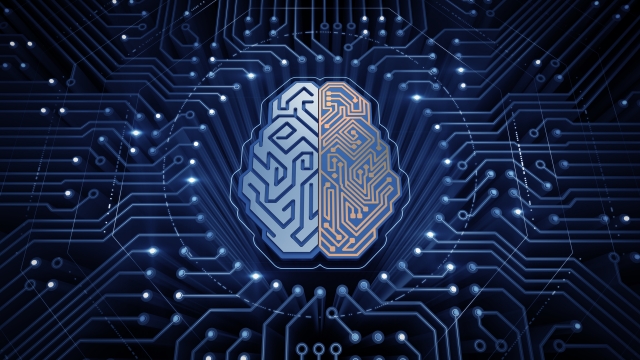
Artificial intelligence has been a subject of fascination and speculation for decades, captured in the vivid imaginations of storytellers and filmmakers alike. What was once solely the realm of science fiction has now become an integral part of our daily lives, driving innovations and transforming industries in ways previously unimaginable. The rise of AI marks an extraordinary journey from fantastical concepts to tangible realities, forever changing the way we work, communicate, and interact with technology. As AI continues to evolve and permeate various aspects of society, its impact and potential only continue to grow, shaping a future that is both exciting and filled with possibilities.
Evolution of AI
In the early days, artificial intelligence was a concept confined to the realms of science fiction. It was often depicted as futuristic technology capable of outsmarting humans, leading to both hopes and fears about its potential impact on society.
As technology advanced, the field of artificial intelligence began to gain momentum. Researchers and scientists explored ways to simulate human intelligence in machines, leading to the development of early AI systems that could perform specific tasks, such as chess-playing programs and language translation tools.
With the advent of machine learning and deep learning algorithms, AI entered a new era of sophistication. These technologies enabled machines to learn from data, recognize patterns, and make decisions with increasing accuracy. Today, artificial intelligence is integrated into various aspects of our daily lives, from virtual assistants on our smartphones to autonomous vehicles on the roads.
Applications of AI
AI has found diverse applications across various industries, revolutionizing processes and enhancing efficiency. In healthcare, AI is being used to analyze medical images, diagnose diseases, and personalize treatment plans based on patient data. This technology has the potential to significantly improve patient outcomes and streamline healthcare delivery.
In the finance sector, AI algorithms are used for fraud detection, risk management, and automated trading. These applications allow financial institutions to detect anomalies in real-time, assess risks accurately, and make data-driven decisions swiftly. AI’s predictive capabilities have transformed the way financial transactions are monitored and managed.
Moreover, in the field of customer service, AI-powered chatbots are increasingly being integrated into websites and messaging platforms to provide instant responses to customer queries. These chatbots use natural language processing to understand customer requests and offer personalized assistance, thereby enhancing customer satisfaction and reducing response times.
Concerns and Ethical Implications
As artificial intelligence continues to advance, concerns have been raised regarding its potential impact on the job market. With AI being able to automate tasks traditionally performed by humans, there is a fear of widespread job displacement. This raises ethical questions about the responsibility of society and governments to ensure a fair transition for those affected.
Another major concern is the issue of privacy and data security. AI systems rely heavily on data, often personal and sensitive information. The storage and use of this data raise ethical dilemmas around consent, transparency, and the potential for misuse. Striking a balance between utilizing data for AI advancements and protecting individuals’ privacy rights is a delicate challenge.
https://www.blab.com
The ethical implications of AI also extend to areas such as bias and fairness. Machine learning algorithms can inadvertently perpetuate existing biases present in the data they are trained on, leading to discriminatory outcomes. Addressing these biases and ensuring fairness in AI decision-making processes are critical considerations in the development and deployment of AI technologies.
